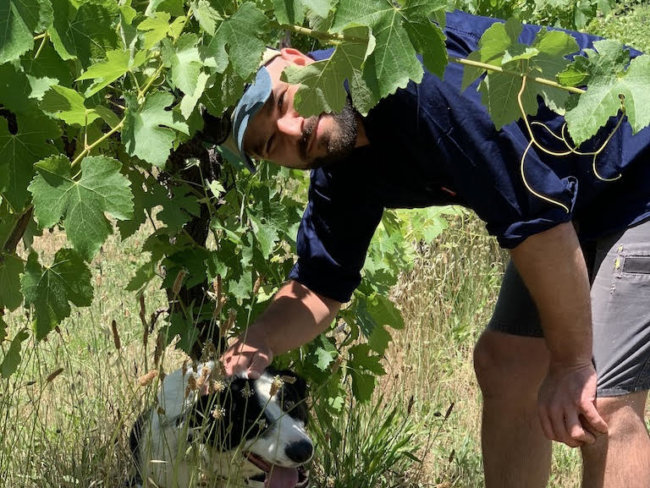William Downie is this century’s original enfant terrible of wine. Well, in Australia at least. A cheerful iconoclast that scythed through convention long before lo-fi winemaking had taken a firm grip on the emerging generation of makers. With a broad smile and a self-deprecating manner, Downie forged his own path of minimal intervention with scant regard for what others thought. This approach should not be mistaken for arrogance, but rather an attitude forged by the deep belief that you don’t make great wine by second-guessing the expectations of others. To that end, Downie is also one of the most witheringly self-critical makers in the land. That exactitude and drive has seen him rise to be one of the finest exponents of pinot noir in this country, with his maturing Guendulain Farm vineyard, in Gippsland, promising to deliver even more on his substantial promise. William Downie was a two-time finalist in the Young Gun of Wine Awards, in 2007 and 2008.
Downie’s stint in a suburban bottle shop in the late ’90s lead to a Jeremy Oliver wine course, then enrolment in the inaugural Negociants Working with Wine Fellowship, in 1998. The curriculum required a written piece, which led to Downie interviewing Philip Jones of Bass Philip. This was not an easy interview to snare, mind you, and was conducted amongst the vines, with Downie pruning alongside Jones. Two years later, and with meaningful experience as a vineyard worker and an education built from daily exposure to both Bass Philip wines and Burgundy over lunch, Downie’s relationship with Jones had soured, with the mentor giving his apprentice dispiriting parting words.
Jones’ assessment of Downie’s skills as modest at best were a confidence challenge over the years, but he pushed on both in study and at De Bortoli just after the turn of the millennium, right at the dawn of the Yarra Valley stalwart’s renaissance. Indeed, Downie is credited with much of the philosophical shift in pushing towards a purer, more fragrant style of pinot noir, an influence whose ripples are still felt today. And that would never have been possible but for the foresight of Webber to give a relatively raw and not formally trained winemaker significant responsibility.
Downie immersed himself in the great wines of the world, but Burgundy more specifically, with an almost unhealthy level of zeal. Every spare dollar, and many that may have been better allocated to fundamental survival resources, were spent on wine. Downie admits that no small number of these wines ended up being tipped down the sink, but amongst the disappointments that Burgundy typically serves up, Downie also found what he was looking for. These were wines of raw authenticity that spoke of place, without undue winemaking artefact. The best of these wines lured Downie to Burgundy for the 2001 harvest.
Webber wished him well, but later convinced him to return to the Yarra for the 2002 harvest. Webber had given him significant creative freedoms, but Downie took these a step further, overhauling the making of the premium pinot noirs entirely. His methods were hands off, with destemmed berries fermented without plunging or pumping until late in the ferment. They produced more elegant wines, without the deep levels of extraction that were commonplace.
Once he returned to France to work with Romaine Lignier in Morey-St-Denis, the wines were resting in barrel, and they were somewhat of a shock to the De Bortoli team, and almost universally reviled. With time, those wines came around, and so did the winemaking team. This led to Downie making a De Bortoli wine in Burgundy in 2003, and saw Webber appoint him Senior Winemaker in 2006. Downie also met another significant influence on his life in France, his future wife, Rachel, who had worked for Kermit Lynch in both Berkley and Beaune. She spoke fluent French, and her knowledge of and passion for food and wine still awes Downie.
Downie had been making pinot noir under his eponymous William Downie label since 2003, with Mornington, Yarra Valley and Gippsland bottlings produced by the time he left De Bortoli in 2007. Now he makes wine under his own labels, including from his home property, Guendulain Farm, in Gippsland, but he was also the founding winemaker at the ambitious Thousand Candles, with Patrick Sullivan by his side. Downie also works with Jason Searle to produce the SOS wines, which include a skin-contact white, sagrantino and sangiovese.





